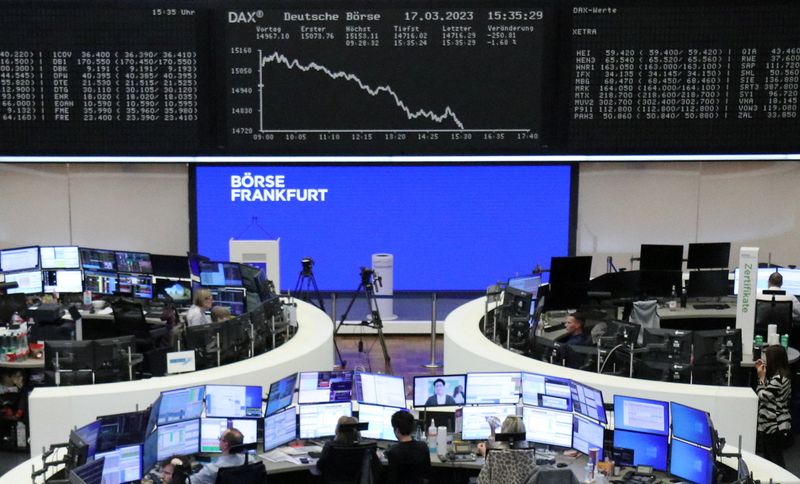(Reuters) - A look at the day ahead in European and global markets from Wayne Cole.
Another day, another disappointment from China.
This time China chose to only trim its one-year benchmark lending rate by 10 basis points and leave the five-year rate unchanged, surprising analysts who had looked for cuts of 15 basis points in both.
The news knocked Chinese blue-chips to a nine-month low and kept pressure on the yuan even as the People's Bank of China (PBOC) tried to support it with another firm fixing. Analysts estimate Chinese banks sold at least $2 billion offshore last week on behalf of the PBOC, but only managed a temporary pause in the yuan's decline.
Western investors still seem to assume that Beijing will buckle and launch massive fiscal stimulus to juice the economy, as it has done in the past. Yet the authorities show no sign of complying, so maybe financial markets aren't as important as they like to think they are.
That's not to say Beijing is doing nothing. China's securities regulator unveiled a package of measures on Friday aimed at boosting investor confidence. Dozens of China-listed companies responded over the weekend by outlining plans to purchase their own shares.
The PBOC also said China would coordinate financial support to resolve local government debt problems, and there are plenty of reports of policymakers encouraging banks to lend more.
Clearly this is not the fiscal spending splash investors hunger for, but perhaps it's sinking in that Beijing is not prepared to play ball this time. After the initial wobble, Chinese shares came off the lows, the Nikkei pushed higher and even the Aussie managed to stabilise.
While Beijing might not have the appetite for debt-funded spending, the same cannot be said of the United States where the budget deficit is running at an annual $1.6 trillion. The sort of deficit once only associated with running wars is likely one reason the economy continues to surprise. The latest Atlanta Fed GDPNow estimate is up at 5.8% annualised and, while surely overstating things, this quarter looks like being a barnstormer.
It's certainly much hotter than what the Fed expected at its last policy meeting and poses a messaging challenge for Fed Chair Jerome Powell at the Jackson Hole meeting this week. He could acknowledge the strength, and so give a green light to the recent jump in Treasury yields, or he might emphasise that inflation has also surprised in its decline. It will be interesting to see how he threads that needle.
Key developments that could influence markets on Monday:
- Joint press conference of Finance Ministers of Germany, Luxembourg, Austria, Switzerland and Liechtenstein

- German producer price data for July
(This story has been refiled to remove an extraneous word in paragraph 3)
(By Wayne Cole; Editing by Sam Holmes)